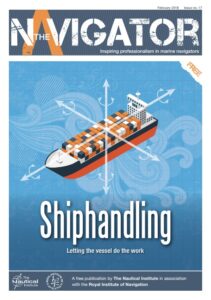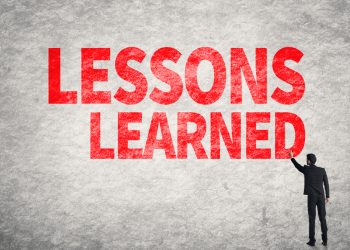In its latest edition of The Navigator, the Nautical Institute and the Royal Institute of Navigation explore some basic principles of shiphandling and how an individual can gain experience and make the most of any opportunities to learn.
The three best ways of learning are: onboard a ship in active service, using a simulator or in a manned model. However, learning can also be achieved by reading books, joining discussions, undergoing computer-based training or even by moving ship-shaped wooden blocks around a table top, notes David Patraiko FNI, Director of Projects of The Nautical Institute.
“Probably the best way to enhance all of these training methods is to reflect upon your experiences with someone with more knowledge than you, to identity what went well and where improvements can be made.”
The Navigator explores the key skills and knowledge needed to become an effective shiphandler:
- Number one skill: Shiphandling skills are probably the navigator’s greatest skills – both in terms of professional pride and consequences should things go wrong.
- Practice: Shiphandling is probably one of the most difficult skills to master as it comes from practice – which is hard to find time for, or specialist training – which is costly.
- Mentoring: Be a mentor if you can and get a mentor if you can; learning on the job is the best way of learning to handle a ship.
- Watch and reflect: Even if you can’t handle a ship yourself, watch others, such as the Master or Pilot, to learn what to do – or not to do… Taking time to reflect on what went right and what could be improved is a powerful learning tool.
- What turns a ship?: It’s not just the rudder, all forces must be used and balanced, including propulsion, environment and dynamic forces.
- Let the ship do the work: The best shiphandlers are the ones who appear to do the least. They let the ship do the work for them.
- Plan: Having a plan is crucial to success. Anticipating how the ship will behave will help you to carry out that plan.
- No need for speed: When berthing a ship, the faster you go, the longer it will take.
- Keep calm: A calm, measured approach will instil confidence in the bridge team and get you in the correct position more quickly and with far less drama.
- Logbook: Keeping a logbook of your practice manoeuvres is invaluable. It allows you and your mentor to reflect on your success, demonstrates to others your capability, identifies gaps in your experience that may require extra training, and is a document to take professional pride in. The Nautical Institute provides specialist logbooks for shiphandling.
The Nautical Institute recently launched an individual logbook, enabling mariners to record and reflect on their experiences, provide evidence of what has been learned, identify gaps and be encouraged to take opportunities to learn more.
Further information may be found by reading the full issue of Navigator herebelow:
































































